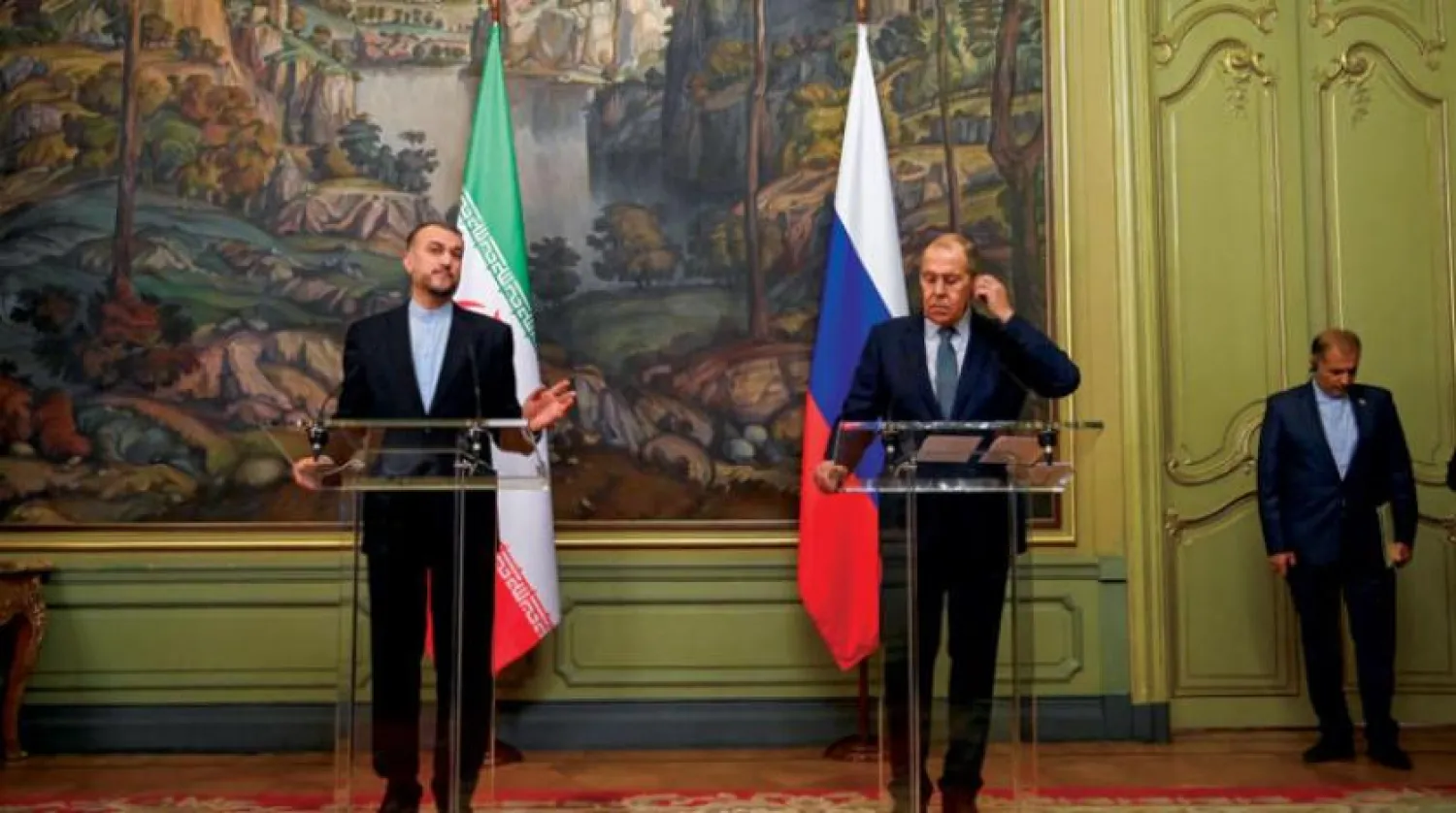Russian Foreign Minister Sergei Lavrov discussed with his Iranian counterpart, Hossein Amirabdollahian, in Moscow a wide range of bilateral and regional issues, namely bilateral cooperation and setting a road map ahead of concluding the strategic cooperation agreement.
The ministers addressed Iran's nuclear program and the developments in the South Caucasus, Syria, and Afghanistan, along with the security of the Gulf region.
Lavrov said that the talks focused on enhancing cooperation, noting that trade exchange between the two countries increased 42 percent during the past nine months despite the COVID-19 pandemic and Western sanctions.
He welcomed the launch of formal procedures on accepting Iran as a full member of the Shanghai Cooperation Organization (SCO), launched this year in Tajikistan.
"A new vector of our cooperation will have to do with Iran's joining the organization as a full member," said the minister.
He indicated that Iran asserted its commitment to implementing its obligations, and "we expect Washington, in turn, to abide by its commitments, under the agreement."
Lavrov strongly defended Iran's position regarding the stalled negotiations in Vienna, saying Russia's position was that the deal could be restored by implementing the original agreement signed in 2015.
"The international community is waiting for the US to return to the legal field of the deal and the cancellation of illegal restrictions both against Iran and its economic partners," he said.
Lavrov praised the level of Russian-Iranian cooperation and said that the two sides discussed the current developments and exchanged views on the steps to establish security and stability and revitalize the path of humanitarian aid.
The Russian minister touched on the situation in the Gulf region and discussed with his Iranian counterpart the necessity of strengthening the Arab-Iranian dialogue to resolve regional crises.
Lavrov indicated that Afghanistan suffered because of Washington's policies for more than two decades and has the full right to enjoy stability and security.
On the settlement in the Caucasian region, Lavrov said Moscow was discussing the so-called 3+3 format.
"We discussed an initiative to create the format 3+3: three Transcaucasian countries and three big neighbors - Russia, Iran, and Turkey. Iranian friends positively view this initiative, and we can see the same feeling in Azerbaijan and Turkey," Lavrov said.
The format will address the issues of security and unblocking economic and transport ties, Lavrov said.
"Iran, Russia, and Turkey, as the closest neighbors of these three republics, will also benefit from this," the minister said.
According to Lavrov, Iran already expressed its positive attitude to the initiative, the same reaction Russia met from Turkey and Azerbaijan.
For his part, Amirabdollahian announced that he discussed Syrian elections with Lavrov, stressing the importance of coordinating with Russia on the Syrian settlement.
The Iranian FM praised the bilateral relations with Russia and said that Tehran and Moscow share views on all discussed issues.
Addressing the situation in Afghanistan, Iran will hold a meeting at the level of foreign ministers and will invite Russia, he said.
"We will hold a meeting of Afghanistan's neighbor countries at the level of foreign ministers shortly, plus Russia. We want to hold it in Tehran. Russia also wants to hold a Moscow-format conference to assist in the settlement in Afghanistan. We view Iran's participation (in the conference of the Moscow format) positively," he said.
Amirabdollahian said Iran is concerned over the military drills held by Azerbaijan.
"As for the South Caucasus, we have concerns. [..] We will not tolerate geopolitical and map changes in the Caucasus. And we have serious concerns about the presence of terrorists and Zionists in this region."
He indicated that Tehran welcomes the representatives of the International Atomic Energy Agency (IAEA) as part of any "technical" visit that falls within the framework of their missions but rejects any visit with political agendas.
Iran could resume nuclear talks soon, Amirabdollahian pointed out, adding that during the UN General Assembly, US President Joe Biden has signaled a willingness to return to the deal. However, his Secretary of State Antony Blinken warned last week that time was running out, and the ball was in Iran's court.
He believed that the first step required Washington to show its seriousness by releasing Iran's $10 billion in US banks.
Asked about the results of the dialogues with Saudi Arabia, Amirabdollahian said his country presented its ideas and vision to normalize relations, asserting Iran's fully prepared to hold the talks, which will reduce foreign interferences and establish good neighborly relations.









